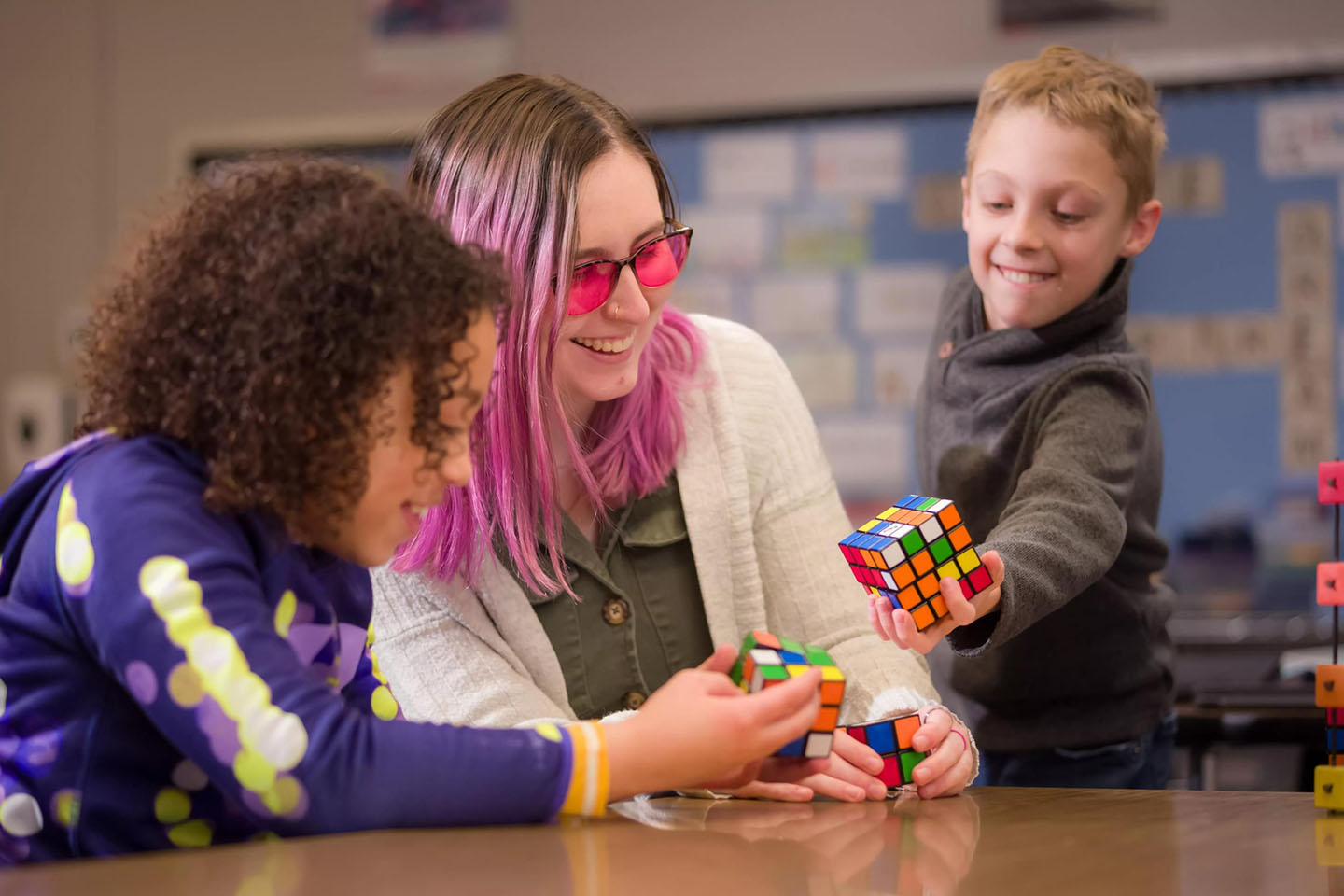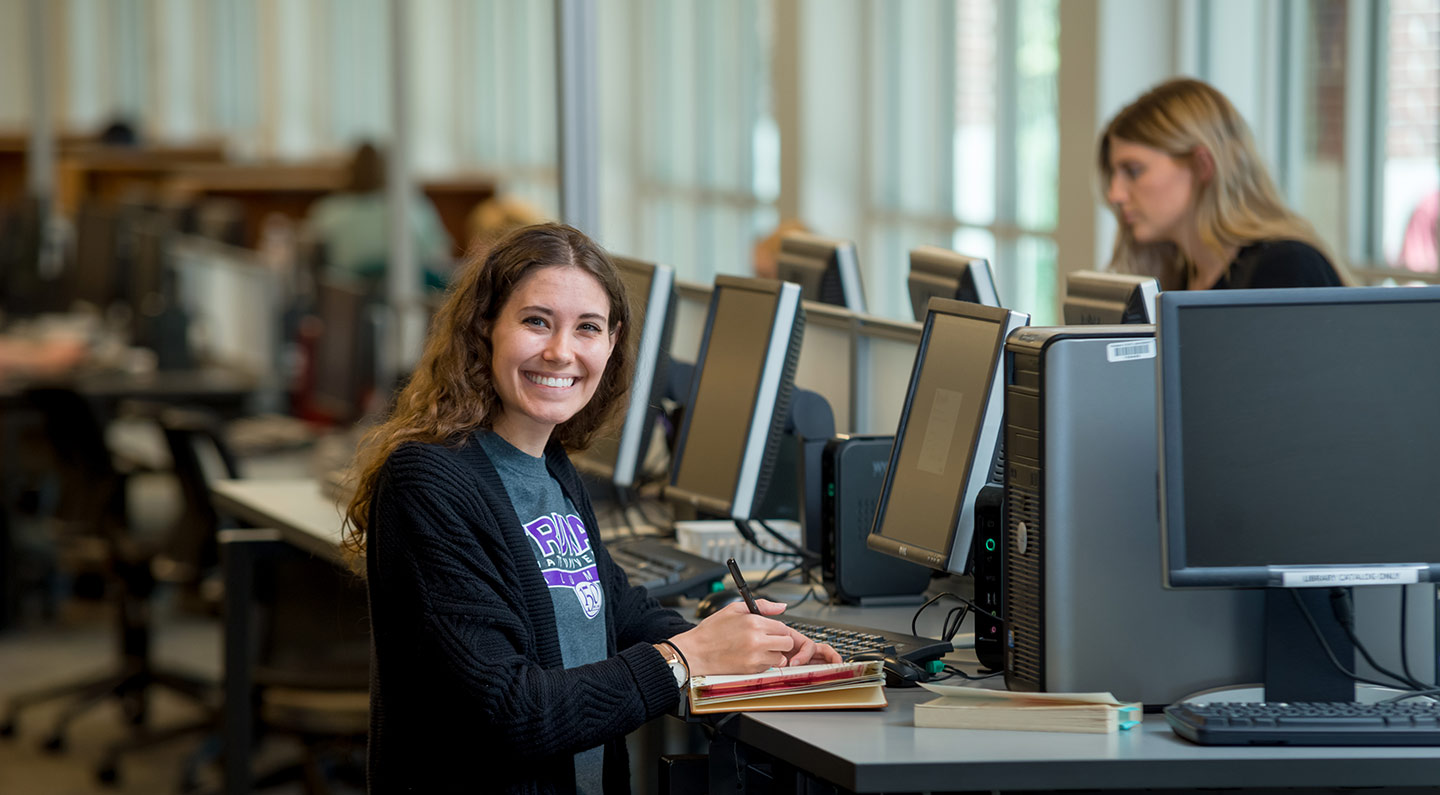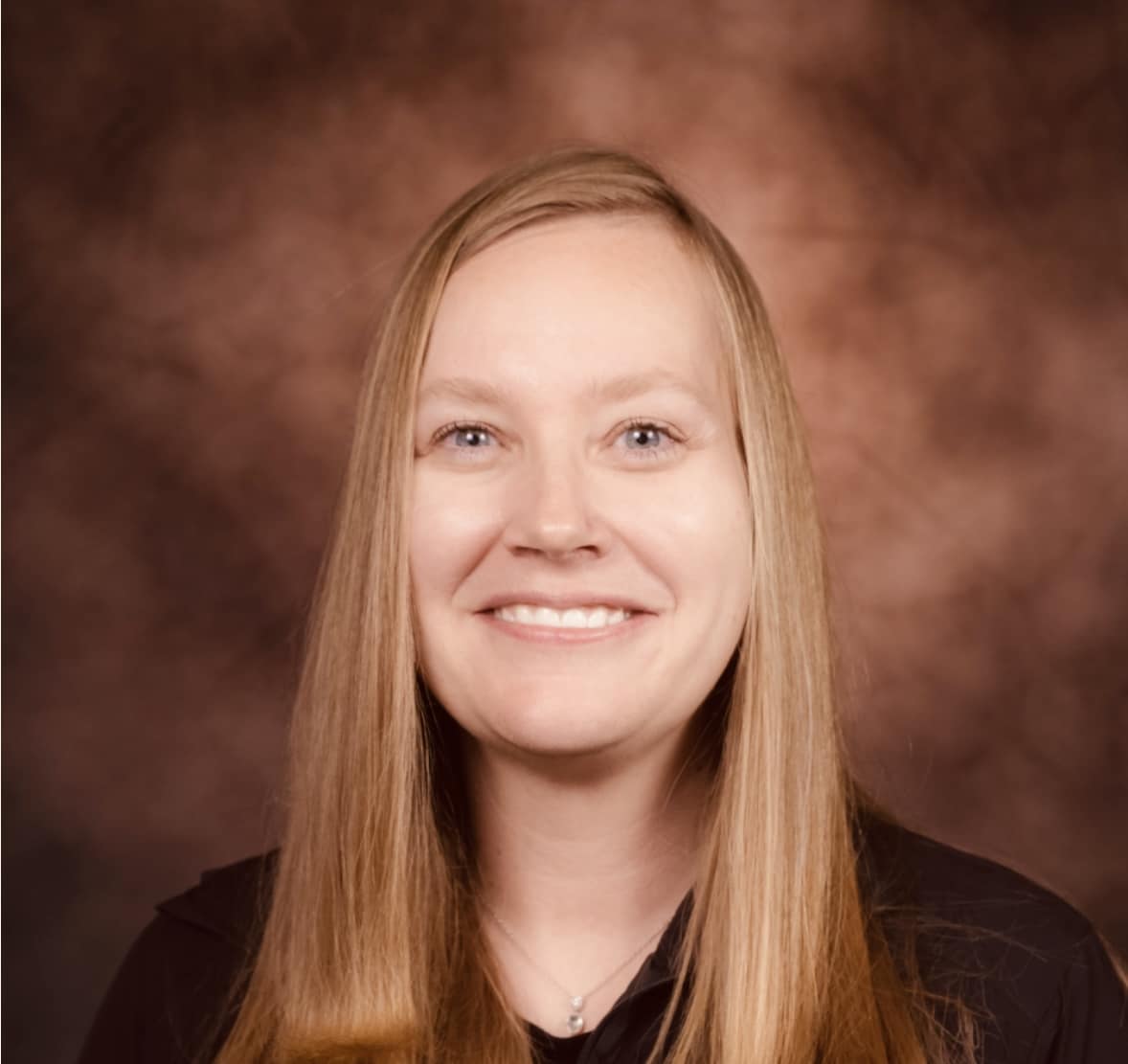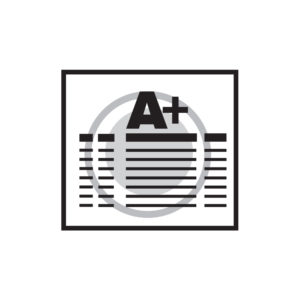Online Master of Arts in Gifted Education

Learn the skills you need to better identify gifted characteristics in students, develop effective curricula, and provide support throughout the learning process. You’re in control with completely online study options. Earn a Master’s degree or complete certification requirements with the selection of individual courses.
100% Asynchronous Online

Learn While You Work
Online coursework means you learn on your own schedule and at your own pace. Chart an accelerated course of study to complete your Master’s or take a single class and implement new skills and information into your classroom as you go.
Why Truman?
- An emphasis on current challenges and opportunities unique to gifted education
- A combination of Truman Education faculty and active expert practitioners
- Fully online coursework combined with practical field experience
- A program designed for the working professional
- Affordable tuition and a top-notch program
Curriculum
Browse the entire Gifted Education curriculum below, then chart your customized study path. If you choose to complete the full Master’s program, you’ll take all of the core coursework, plus electives and an internship.
Explore the nature and needs of gifted learners as you investigate concepts of intelligence and giftedness, methods used to identify gifted learners, and issues related to special populations of gifted learners. You’ll link the philosophy of gifted education, learner characteristics, understandings about intelligence, identification procedures, and curriculum into coherent and defensible services for gifted learners.
Examine your rights and responsibilities in educating students with gifted and handicapped conditions; current philosophy and terminology in gifted and special education programs; and the programming implications of students from culturally diverse backgrounds.
Examine research methodologies, designs, collecting and analyzing data, and writing and presenting findings through completion of an action research project in gifted education.
Learn about the processes and recommendations for identifying gifted students and study how culture, economics, and family roles impact identification. You’ll also become familiar with different identification tools and apply their knowledge of gifted learners to create an identification process for a school.
Learn how to develop, implement, and evaluate effective curriculum, instruction, and assessment to improve learning for gifted students through discussion of gifted education theory, curriculum development theory, systems thinking, higher order thinking, questioning skills, creative thinking, technology use, differentiation, and assessment. Additionally, you’ll examine how curriculum design for gifted students can impact curriculum for all students.
Focus on the affective needs of gifted students by exploring research and material relevant to the social and emotional components of giftedness. You’ll examine the role(s) of the educator, motivational issues, relationships, perfectionism, common areas of psychological response, gifted children and youth with special needs, underachievement, and promising practices and interventions for meeting the affective needs of gifted children.
Learn to identify programming options for gifted learners including acceleration, enrichment, internships, mentoring, distance learning, etc. to enhance students’ learning while meeting their intellectual and affective needs. You’ll collaborate with others to create opportunities for diverse learners, as well as examine your school’s current system for gifted programming to create recommendations for improvement.
Study topics that cover national, state and local policies and procedures; advocacy vs. activism; current trends in gifted education; research; and professional development and communication.
Examine the theoretical aspects of creativity – what is creativity, and how do we develop it in ourselves and in our students? You’ll learn the major definitions, theories, and research related to the study of creativity and the creative individual, techniques for stimulating creative thinking, and creative problem-solving strategies to utilize with students.
We work with your schedule to arrange an internship that meets your needs and state certification requirements. Under the guidance of mentor teachers, administrators, and University representatives, your internship provides extensive experience in all facets of your role as a teacher to gifted students.
Sample Plans of Study
Accelerated Plan
| FALL | SPRING | SUMMER | |
| YEAR 1 | First Block: ED 550 - Intro to Gifted Second Block: ED 604 - Professional Learning | Full Semester: ED 605 - Psychology of Exceptional Children ED 633 - Research | First Five-Week Session: ED 626 - Creativity ED 652 - Meeting the Affective Needs of Gifted Second Five-Week Session: ED 650 - Identification of Gifted ED 653 - Programming and Administration |
| YEAR 2 | First Block: ED 651 - Curriculum Full Semester: ED 619 - Internship/Practicum |
One Class at a Time
| FALL | SPRING | SUMMER | |
| YEAR 1 | First Block: ED 550 - Intro to Gifted | Full Semester: ED 605 - Psychology of Exceptional Children | First Five-Week Session: ED 652 - Meeting the Affective Needs of Gifted Second Five-Week Session: ED 650 - Identification of Gifted |
| YEAR 2 | First Block: ED 651 - Curriculum Second Block: ED 604 - Professional Learning | Full Semester: ED 633 - Research | First Five-Week Session: ED 626 - Creativity Second Five-Week Session: ED 653 - Programming and Administration |
| YEAR 3 | Full Semester: ED 619 - Internship/Practicum |
Accelerated Plan
| FALL | SPRING | SUMMER | |
| YEAR 1 | First Block: ED 550 - Intro to Gifted Full Semester: ED 605 - Psychology of Exceptional Children | First Five-Week Session: ED 626 - Creativity ED 652 - Meeting the Affective Needs of Gifted Second Five-Week Session: ED 650 - Identification of Gifted ED 653 - Programming and Administration |
|
| YEAR 2 | First Block: ED 651 - Curriculum Second Block: ED 604 - Professional Learning | Full Semester: ED 619 - Internship/Practicum ED 633 - Research |
One Class at a Time
| FALL | SPRING | SUMMER | |
| YEAR 1 | First Block: ED 550 - Intro to Gifted | First Five-Week Session: ED 652 - Meeting the Affective Needs of Gifted Second Five-Week Session: ED 650 - Identification of Gifted |
|
| YEAR 2 | First Block: ED 651 - Curriculum Second Block: ED 604 - Professional Learning | Full Semester: ED 605 - Psychology of Exceptional Children | First Five-Week Session: ED 626 - Creativity Second Five-Week Session: ED 653 - Programming and Administration |
| YEAR 3 | Full Semester: ED 633 - Research | Full Semester: ED 619 - Internship/Practicum |
Accelerated Plan
| SUMMER | FALL | SPRING | |
| YEAR 1 | First Five-Week Session: ED 550 - Intro to Gifted ED 652 - Meeting the Affective Needs of Gifted Second Five-Week Session: ED 650 - Identification of Gifted ED 653 - Programming and Administration of Gifted | First Block: ED 651 - Curriculum Second Block: ED 604 - Professional Learning | Full Semester: ED 619 - Gifted Internship ED 633 - Research |
| YEAR 2 | First Five-Week Session: ED 626 - Creativity ED 605 - Psychology of Exceptional Children Graduate in December |
One Class at a Time
| SUMMER | FALL | SPRING | |
| YEAR 1 | First Five-Week Session: ED 550 - Intro to Gifted Second Five-Week Session: ED 650 - Identification of Gifted | First Block: ED 651 - Curriculum | Full Semester: ED 633 - Research |
| YEAR 2 | First Five-Week Session: ED 652 - Meeting the Affective Needs of Gifted Second Five-Week Session: ED 653 - Programming and Administration of Gifted | Second Block: ED 604 - Professional Learning | Full Semester: ED 619 - Gifted Internship |
| YEAR 3 | First Five-Week Session: ED 626 - Creativity Second Five-Week Session: ED 605 - Psychology of Exceptional Children Graduate in August |
Meet the Faculty
Admission
Spring 2025 START:
Apply by December 1
Summer 2025 START:
Apply by May 23
Fall 2025 START:
Apply by August 15
Rolling Admission
Admission is made on a rolling basis and treated on a first-come, first-served basis.
Application Requirements
Estimated Costs
*Total estimated tuition based on 2024-25 academic year. Tuition subject to change.
Financial Aid
Degree-seeking students enrolled in at least six credit hours per semester are eligible for federal financial aid programs. For more information, see Financial Aid Resources for Graduate Studies or contact the Financial Aid Office at (660) 785-4130 or finaid@truman.edu.
Schedule a Virtual Visit

Virtual Visit
Get an inside look at the online learning environment, meet your professors, and get all your questions answered during a virtual visit







